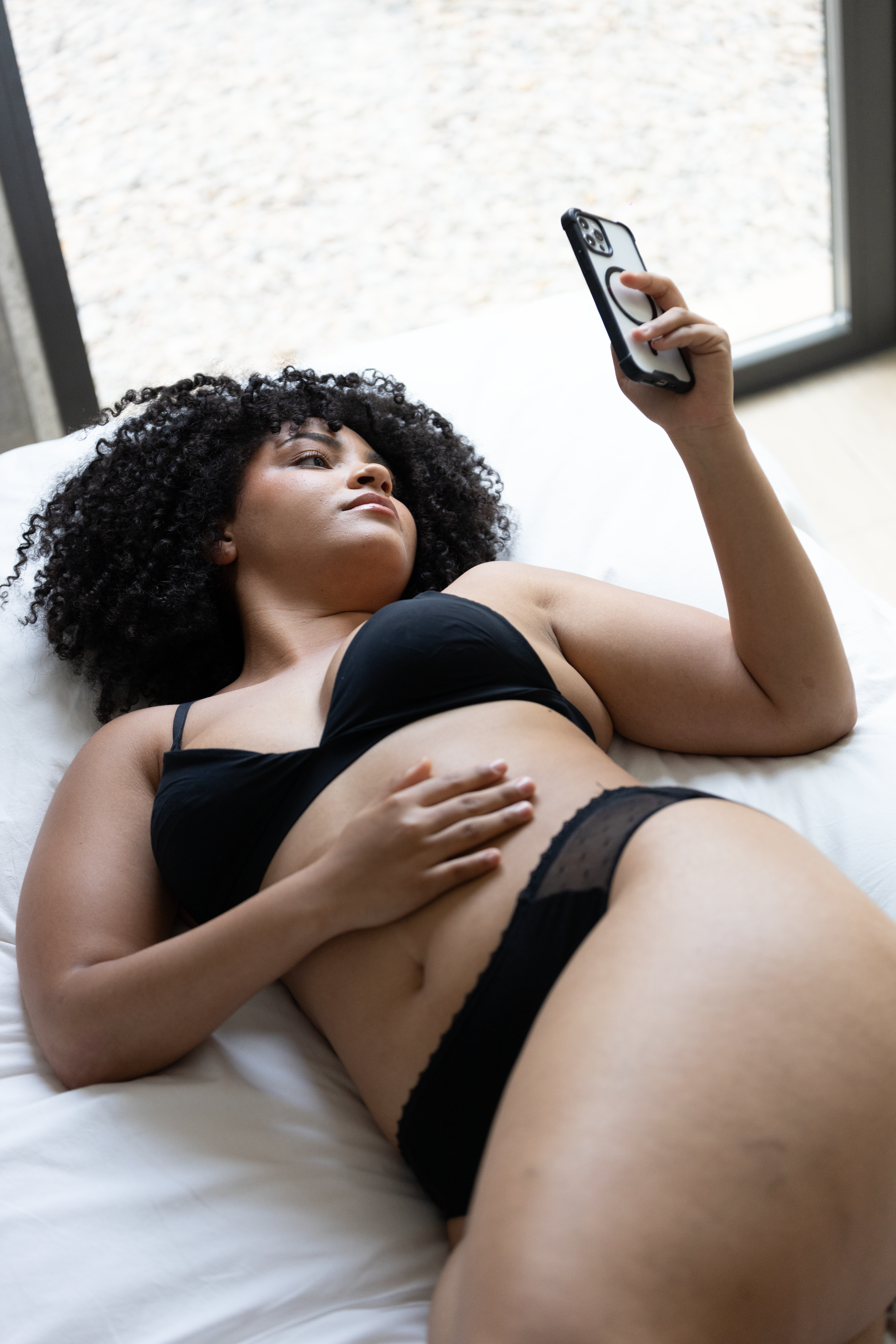
How to control your emotions during your menstrual cycle

Surely you've heard the phrase "She's moody because she's probably menstruating". And we bet it just brings you to lose your cool even more. Been there, done that.
However, what it’s certain is that anxiety, fatigue, nervousness, or irritability can be symptoms that some women suffer from prior to menstruation and then decrease as the period progresses. It is normal for women to go through an intense whirlwind of hormonal changes once a month. This triggers not only physical changes but also emotional ones.
It is possible to control all these emotions so that they do not affect us negatively in our daily lives. Join me to discover how to do it.
Let's get started!
How can you deal with your emotions during your menstrual cycle?
Premenstrual syndrome is all of those hormonal changes that occur in women. These can lead not only to physical changes but also to emotional changes.
These emotional changes do not usually affect all women equally. What is certain, however, is that in affected women, the whirlwind of emotions reaches such a level that it can even considerably decontrol the daily routine.
It is not a matter of blaming hormones.
It is not a matter of just blaming our hormones every time we have a sudden change of mood. On the contrary, it is about understanding that prior to and during our menstrual cycle, we have changes in our body, and we must learn to manage them. It is time to stop blaming hormones for all our negative behaviors during this period. It is necessary to take responsibility.
Tips for you to manage your emotions during your menstrual cycle.
-
Make changes in your diet:
Mood swings are usually directly related to a decrease in serotonin. That is why eating foods high in tryptophan (hazelnuts, chicken, eggs, tuna) helps to reduce these sudden mood swings.
Prior to your period, it is necessary to reduce or eliminate any type of stimulating beverage, such as coffee. Also, avoid consuming foods rich in sugar and eliminate alcohol consumption.

-
Incorporate healthy habits into your life.
Doing moderate exercise, sleeping the required hours, as well as performing relaxation routines will help your endorphin levels to increase considerably. It is in this way that the symptoms of anxiety and sadness will decrease.
-
Keep a record:
Keeping a record of your menstrual cycle is something fundamental. It is through this record that you can not only include the date of the beginning and end of your period. You can also include all your physical and emotional changes.
It is in this way that you will be able to foresee the patterns of behavior that occur during your menstruation. This way, you will discover which are the situations that awaken all those negative emotions. Then you can create a plan to avoid them.
-
Design an activity plan:
A very good idea to alleviate negative emotions during your menstrual cycle is to design a plan of activities that you enjoy. This will help you to keep your emotions stable and decrease sudden mood swings.
As you may have noticed. The signs of PMS can easily be mistaken for depression or other mood disorders. That is why, if you notice that these changes persist after your menstrual cycle, it is best to see a professional who can help you.
Remember to always be prepared for your menstrual period. Never let it take you by surprise. Always keep eco-friendly pads or reusable panties in your purse. An extra change of underwear, and don't let negative emotions ruin your day.




